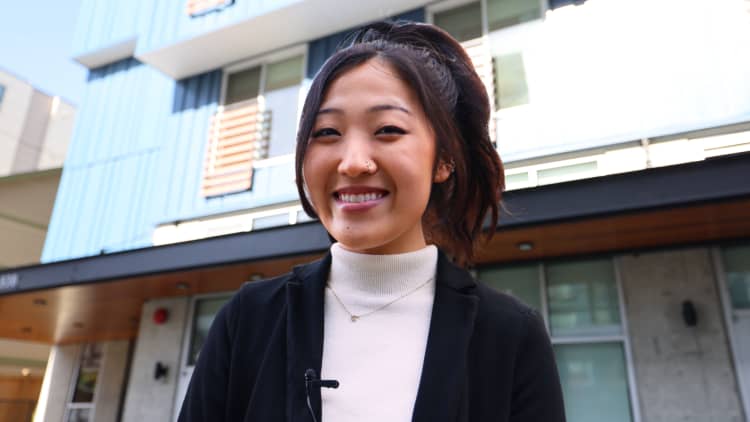In an interview earlier this week, Airbnb CEO and co-founder Brian Chesky pointed out that a revival of return-to-office pushes are often coming from executives with the most amount of flexibility.
"I guarantee you that many of these CEOs who are calling people back to the office in New York City are going away to the Hamptons for the summer or going to Europe in August," Chesky said in a "Decoder" podcast interview published Tuesday.
Of course, Chesky is incentivized to encourage remote work, which can allow people to work while traveling for extended periods of time. He said monthly stays make up one-fifth of Airbnb's business and are one of its fastest-growing segments.
Even so, senior-level workers generally get more flexibility in when and where they work. Some 43% of managers worked in a hybrid arrangement versus 18% of non-managers in March 2023, according to an Axios analysis of data from WFH Research.
Meanwhile, 45% of managers were expected to report on-site full-time, compared with 62% of non-managers.
At some of the highest ranks, Cowen Partners, an executive search firm, says 75% of their current openings are hybrid, up from 25% pre-pandemic.
Chesky made a big bet on flexible work in April 2022 when he announced Airbnb staff could "live and work anywhere," citing the "most productive two-year period in our company's history" while working remotely, and that employees wouldn't get a pay cut for moving.
The announcement led to a spike of more than 800,000 people flocking to its career page.
Chesky has since only doubled down on flexible work, saying that businesses who don't embrace it are at a "disadvantage" and that "the office as we know it is over." He also acknowledged that an era of "pure work-from-home" is ending as more people return to worksites, but that CEOs have to be strategic in how they offer flexibility in the long term.
"Here's the calculation every CEO has to make," he said: "Are you more productive having people physically in an office together and then constraining who you hire to a 30-mile or a 60-mile commuting radius to the office? Or by allowing your team to be able to hire people from anywhere?"
A lot of it will depend on the role, he said — software engineers, accountants and lawyers might be able to work more independently than creative teams, for example. But overall, he said, "a giant sea of desks probably isn't the most effective thing, and many roles will be much more effective when allowing flexibility so you can have a global talent pool."
Chesky re-emphasized on the podcast his stance that some in-person connection is important, though — the majority of Airbnb staff are expected to gather for a week once a quarter, and the CEO says he goes into the office about every other week, multiple days a week.
"We don't want to recreate this world of 'Wall-E' where everyone's just staring at screens all day and no one has any interaction in the physical world," he said.
Want to be smarter and more successful with your money, work & life? Sign up for our new newsletter!
Get CNBC's free report, 11 Ways to Tell if We're in a Recession, where Kelly Evans reviews the top indicators that a recession is coming or has already begun.
Check out: Bosses think in-office work 3 times a week is ‘the magical number.’ ‘It’s not,’ says CEO



